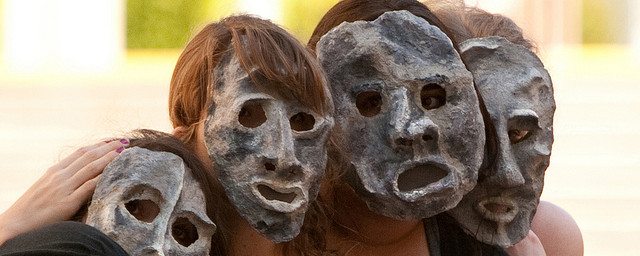WBS uses Antigone and Shakespeare to teach leadership
Warwick Business School’s (WBS) new programme, Leading Wisely uses real life scenarios with the aid of classics in English Literature such as Antigone and Shakespeare to help business executives.
Leading wisely is a hands on program which uses group activities and discussion, current research and ideas to highlight the issues. It facilitates reflection and learning amongst the participants.
This new programme is one of WBS’s experiments that offer new methods of learning and development. It intends make the arts of leadership and management become more up to date with the demands and challenges of the 21st century.
So far the programme has been running as a two day course targeted at business executives to help them examine what it means to be a good leader and develop live case studies to test their decision making.
The course might soon be extended to students of the business school.
Thebes, the land of Greek Mythology in Antigone, is used as an example of an emerging market to invest in. Other modern-day dilemmas include a scenario where a well-respected surgeon is accused of taking drugs without the safety net of procedures the group has to work out the best course of action.
There is an element of the theatre involved, as group members take turns as mentors talking to a junior doctor, played by an actor, who is struggling with this moral conundrum.
The program is run by Professor Jonothan Neelands and Professor Hari Tsoukas. It has been created to allow the learning of leadership skills and insights through reflective practices, in a safe, dynamic environment.
The aim is to help business students make wiser decisions in an uncertain and complex world.
“There is no blueprint on how to be a leader,” said Professor Tsoukas, WBS’s leading academic in Leadership and Organisational Studies, who has been awarded the Doctor of Science by the University of Warwick for his contribution to the field.
He added: “Leading wisely is not down to particular techniques but certain skills and attitudes that can be developed. Leading people involves more than just an analytical mind; human affairs are not straightforward, and this course will help you understand that.
“Using live cases we allow managers to see all 360 degrees of a problem and open their eyes to other viewpoints. Participants not only think, but feel and sense the roles involved.”
Mallika Sahni, a second-year Management undergraduate student at WBS stated: “I feel like WBS would definitely need to make a case for why and how this would improve our leadership skills, as for some of us this will be a completely new avenue of learning.
“If I feel convinced that it is definitely going to add to my development, I will be more than happy to get a different perspective on things.”
Another WBS student, Rinko Nakao added, “I personally think it is interesting as it is completely new to learn leadership from the perspective of the people who lived a long time ago and seem to have no relationship to business.
“I am uncertain if it really works but at least it is a topic which arouses my curiosity.”
WBS will be holding a taster evening for those who are interested in its executive education programme at The Shard in London on January 15 2014.

Comments